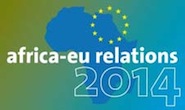The newest issue of ECDPM’s Europafrica bulletin introduces the nine new senior appointees in charge of sub-Saharan Africa, six of whom worked in almost identical positions for the EC’s DG Development before they joined the European External Action Service. As part of EEAS’ Africa entity, whose final designation has not yet been decided, they will be responsible for strategic planning of EU relations with Africa, programming and the financial allocation. This new institutional setup will have implications for the EU policy towards Africa, amongst many pressing questions are how the EEAS will approach EPAs and ...
In April 2011 the European Commission will launch a public consultation for the future Trade and Development Communication which is due to be published in late 2011. Inputs from civil society will feed a Consultation Report, which again forms the basis for internal discussion within the EC during the autumn. The final communication will set out how the EU trade policy will take into consideration the needs from both developing and least developed countries, and is supposed to be accompanied by a paper presenting data on the development implications of EU trade policy since 2002. ...
The European Commission is expected to launch a formal legislative proposal for the post-2013 EU Multi-Annual Financial Framework (MFF) by July 2011. In parallel to that the European Parliament’s Special Committee on the policy Challenges and Budgetary Resources for a Sustainable European Union (SURE) will propose a resolution in March 2011. Negotiations will then start between the EU Member States, the Council and the European Parliament. The process should end by the end of 2012 for the MFF, to enable one year (2013) to put in place the necessary legislation, and for implementation to start ...
After its meeting held on March 21, the EU Foreign Affairs Council recalls that security and development cannot be separated in the Sahel region and it supports the EU’s integrated approach as well as the objectives of its political strategy, including the primary focus on Mali, Mauritania, and Niger. In view of the EU’s commitment to cooperate with local authorities, civil society and regional and international bodies, including the AU and ECOWAS, the Council stresses that the High Representative should take forward consultations on the strategy with these partners. The EU plans to engage around ...
The results of a seminar facilitated by ECDPM on the European Commission’s (EC) green paper consultation on the future of budget support are now available. The EC plan to publish a Communication on budget support by mid 2011. Budget support, one of the EU’s preferred aid modalities over the past decade, has recently come under pressure because of questions regarding its impact, quality and value for money. The seminar discussions revolved around seven core issues and the sets of questions that the EC’s Green Paper identifies. All recommendations have been published in this ECDPM Briefing ...
A new ECDPM Discussion Paper analyses how research organisations can support broad-based ownership of policies in developing countries. It examines in which way international support can effectively assist them and provides recommendations. The influence of a research organisation’s work depend to a large extent on the political context and governance system in which it operates say the authors who also argue that deepening discussions on policies in Southern countries is not only a key requirement for effective aid, but is also a legitimate development outcome in its own right. The paper was drafted for the ...
After the public consultation, high-level European debates on the future of EU Development Policy now focus on the Communication expected from the European Commission (EC) in June. The Communication will lay out a modernised European Union (EU) development policy that will propose new policy guidelines on development aimed at improving EU support to developing countries to speed up their progress towards the Millennium Development Goals and beyond. The communication will also inform EU negotiations that will be launched in June on the bloc’s post-2013 Multi-annual Financial Framework (MFF). As part of the process towards formulating ...
Tourism is the single most important economic sector in the Caribbean with an important potential for employment, ”inclusive” growth and development. The European Union (EU) increasingly recognises the potential of the private sector and tourism in the achievement of development objectives. In practice however, both EU and Caribbean institutions still seem to have problems in tapping the development potential of tourism. In Brussels on 14 March, the Caribbean Tourism Organisation (CTO) in cooperation with the Caribbean Hotel and Tourism Association (CHTA) and the Caribbean Council held it’s annual summit.[i] Several Caribbean Ministers of Tourism, Ambassadors ...
The EU Court of Auditors opinion on the European Commission’s proposal to amend the Financial Regulation applicable to the 10th European Development Fund (EDF) to take into account the creation of the European External Action Service was published on 28 February. The regulation governs all the rules and procedures applicable to the use of EDF resources. Heads of EU Delegations are to be given sub-delegated implementation powers by the responsible Commission Directors-Generals and become authorising officers by sub-delegation. The Commission, however, will remain responsible for the implementation of EDF resources. The Court of Auditors says ...
The new ECDPM Discussion Paper “Fostering democratic ownership. A capacity development perspective” reflects on how external partners can enhance their support for democratic ownership in development cooperation. The authors, Volker Hauck and Tony Land, regard the processes associated with the emergence of democratic ownership as essentially endogenous capacity development processes. Thus, they argue that capacity development insights relating to emergence and change management, founded within complexity and systems thinking, offer avenues for external change agents to more effectively supporting democratic ownership.

















